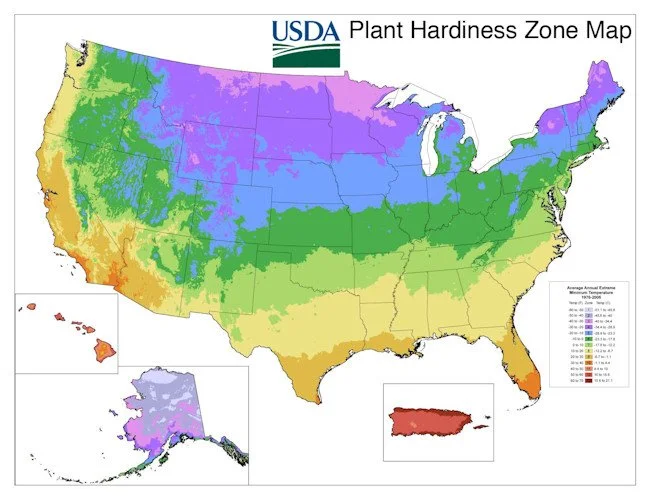Seed Shopping Tips
John & Kay King
One of my favorite memories at this time of year from childhood is setting down with grandma and seed catalogs to decide what we were going to grow in the garden. I was always amazed by the varieties of veggies and flowers. Then, sometimes, we would order some fancy new piece of gardening gear like a new apple picker. Now, ordering anything by mail is just a few clicks away thanks to the Internet. Back then filling out an order form, mailing it with the money, and then waiting for what seemed like an eternity until a box arrived was magical.
Whether you are a seasoned gardener or just starting out, selecting the right seeds is crucial to the success of your garden. Choosing the right seeds is important because it can determine the quality and quantity of your harvest, as well as the overall health of your garden. In this blog post, we will discuss some tips for selecting seeds for your garden.
Determine your growing zone.
Before you start selecting seeds for your garden, it's important to determine your growing zone. Your growing zone is determined by your climate and location, and it can have a big impact on the types of seeds that will thrive in your garden. The United States Department of Agriculture (USDA) has created a map that shows the growing zones for different regions in the United States. Once you know your growing zone, you can select seeds that are best suited for your area.
Consider your garden's conditions.
When selecting seeds for your garden, it's important to consider the conditions in your garden. Different plants require different amounts of sunlight, water, and nutrients to grow, so it's important to choose seeds that are well-suited to your garden's conditions. For example, if you have a shady garden, you may want to choose seeds for plants that do well in partial shade, such as lettuce or spinach.
Choose high-quality seeds.
When selecting seeds for your garden, it's important to choose high-quality seeds. Look for seeds that are fresh and have a high germination rate. You can check the germination rate on the seed packet, which should tell you the percentage of seeds that are likely to germinate. It's also a good idea to choose seeds from reputable seed companies, as they are more likely to have high-quality seeds.
Consider the size of your garden.
The size of your garden can also play a role in selecting seeds. If you have a small garden, you may want to choose seeds for plants that don't take up a lot of space, such as herbs or small vegetables like cherry tomatoes. If you have a large garden, you may have more room to grow larger plants, such as pumpkins or watermelons.
Think about what you want to grow.
This is where garden planning comes in. Ultimately, when selecting seeds for your garden, you should think about what you want to grow. Consider the types of fruits and vegetables that you and your family enjoy eating, as well as any flowers or herbs that you want to grow for aesthetic or medicinal purposes. Make a list of the seeds that you want to purchase and then do some research to make sure they are well-suited to your garden's conditions.
In conclusion, selecting seeds for your garden is an important task that requires careful consideration. By considering your growing zone, your garden's conditions, the quality of the seeds, the size of your garden, and your personal preferences, you can choose seeds that will help your garden thrive. With a little bit of planning and research, you can create a beautiful and bountiful garden that will provide you with fresh, delicious produce and a sense of satisfaction and accomplishment.
Photo via pxHere



